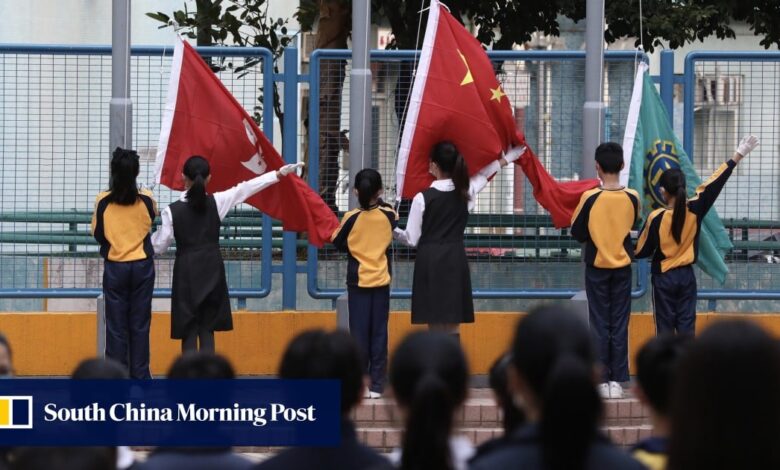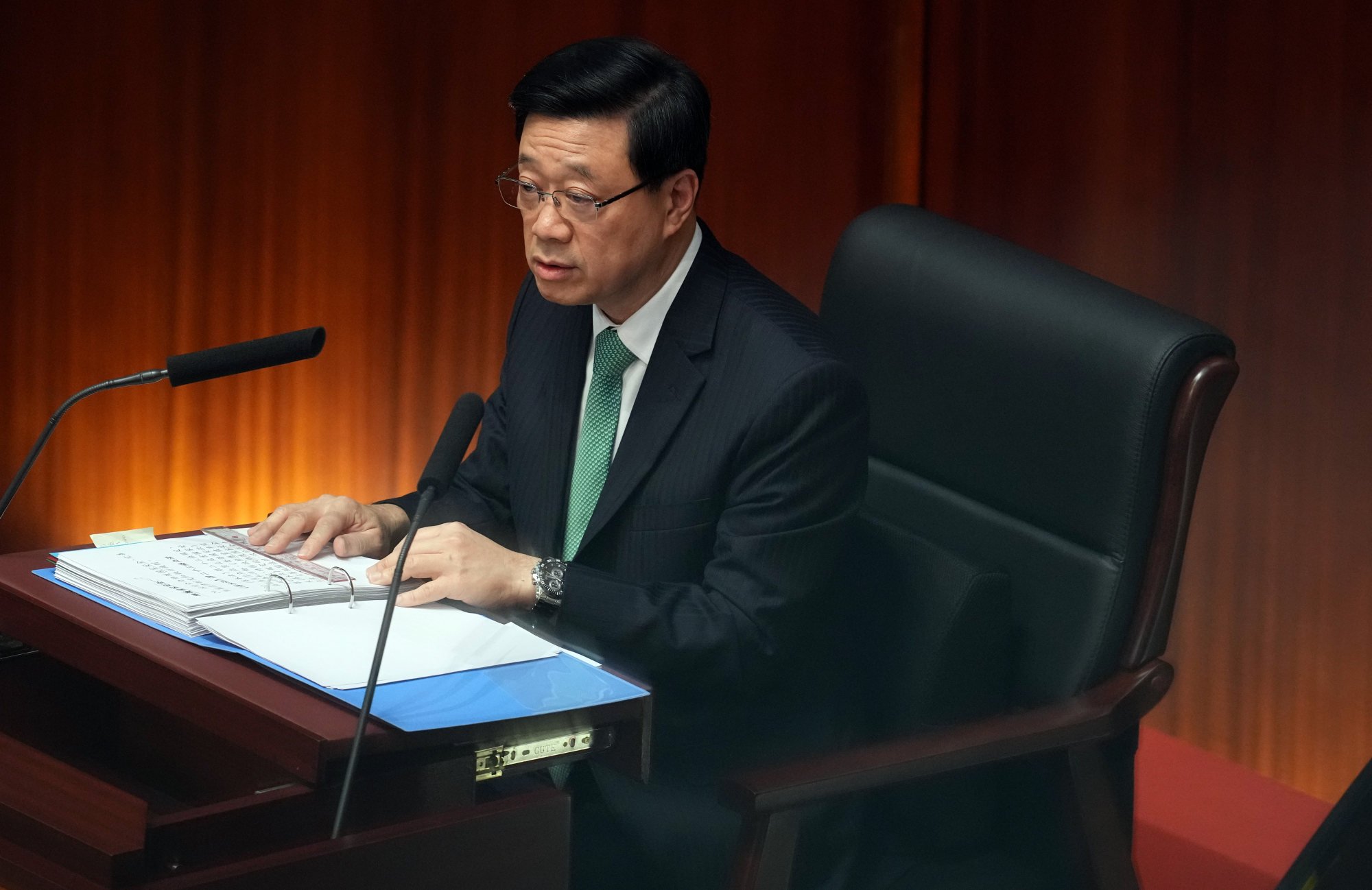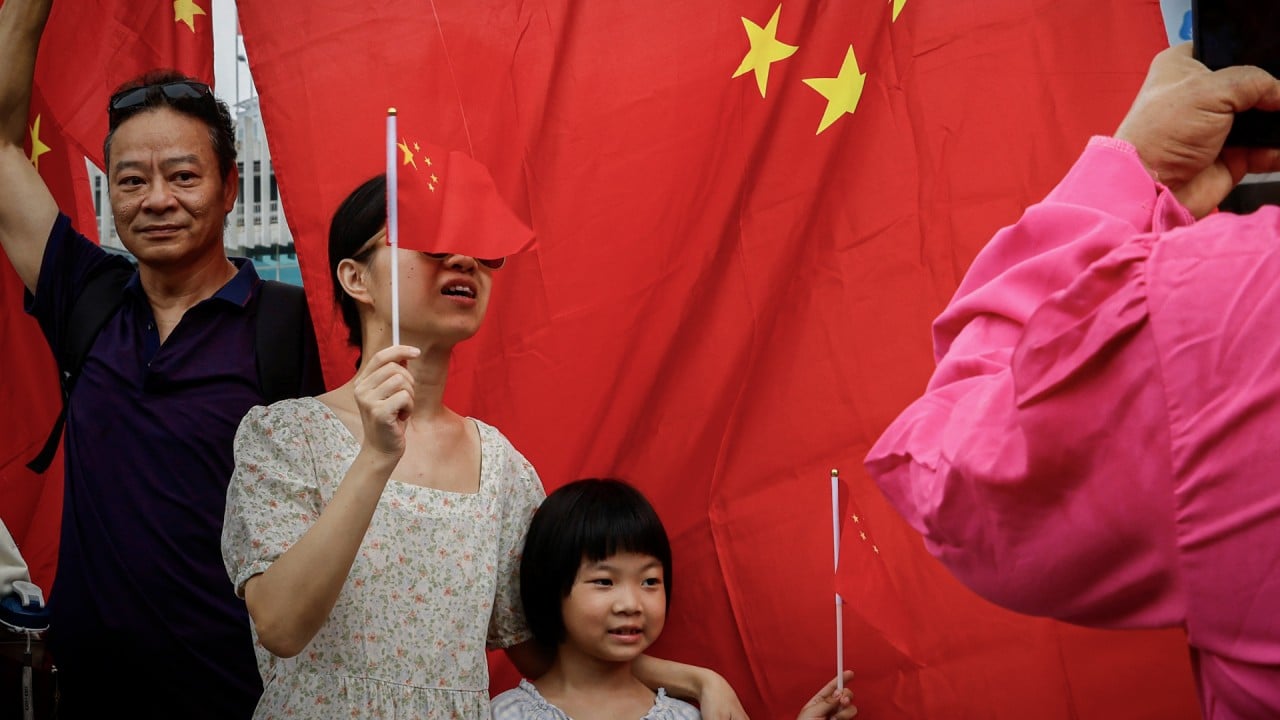Hong Kong set to replace general studies subject in primary schools with humanities curriculum that places greater focus on patriotic education

[ad_1]
The Leisure and Cultural Services Department will set up a Chinese Culture Promotion Office to run programmes starting next year.
A new museum will be dedicated to the “development and achievements” of the country, while the existing Museum of Coastal Defence will incorporate new elements of resistance in World War II.
An important Education Bureau initiative to boost patriotic education is to axe general studies – launched in 1996 – in primary schools, and replace it with two subjects, humanities and science, from September 2025.
According to a government source, the humanities curriculum will focus on the country’s geography, history, latest developments and Chinese culture to boost the awareness of national identity among students.
Primary One and Four pupils in the 2025-26 academic year will be the first batch to study the subject, with full implementation in 2027-28.
Following the revamp, the humanities subject will also cover topics such as sex education, sustainable development, healthy lifestyle and financial education. A committee on the new subject will be formed and the curriculum framework will be rolled out as early as next month.
Hong Kong to expand talent schemes to include Vietnam, Laos and Nepal
Hong Kong to expand talent schemes to include Vietnam, Laos and Nepal
The source admitted the school sector had not been consulted over the changes, but argued that primary schools should be able to cope with the new subject in less than two years, given most of the curriculum would be more or less the same as the general studies.
The new science subject, meanwhile, will be rolled out in the next academic year to boost science, technology, engineering, the arts and mathematics (STEAM) education, with schools to each be given one-off grants of around HK$300,000 to upgrade their science facilities.

So Ping-fai, acting chairman of the Subsidised Primary Schools Council, said he hoped the government would consult them earlier on similar subject revamps, noting the sector still had no idea about the content of the humanities curriculum.
“I hope the new subject will offer a chance to consolidate many different kinds of initiatives on national education,” the primary school principal said, adding they had already “received different orders from the bureau”.
“This should not be a ‘brainwash’ subject which requires rote memorisation. We should let students understand the country more via this subject,” he said.
Hong Kong to open to first university of applied sciences next year, John Lee says
Hong Kong to open to first university of applied sciences next year, John Lee says
Former Hong Kong government adviser Lau Siu-kai, now a consultant for semi-official Beijing think tank the Chinese Association of Hong Kong and Macau Studies, said the national education measures put forth by Lee were “legion” when compared with his predecessors.
“One, however, should not have unrealistic expectations of their effects. Changing public mentality is not an activity that can produce immediate results,” Lau said.
He said promoting patriotic education purported to instil a sense of national pride, national identity and national solidarity in Hongkongers, particularly youngsters, which would help form a sense of responsibility among residents to safeguard national security.
The city leader also reaffirmed a pledge to enact local legislation before the end of 2024 to outlaw national security offences in line with Article 23 of the Basic Law, Hong Kong’s mini-constitution.
While the Beijing-decreed national security law imposed in June 2020 covers secession, subversion and collusion with foreign forces, the city was left to make its own law on the theft of state secrets and banning foreign bodies from conducting political activities in the city.
Legislator Tik Chi-yuen said he doubted the need to draw a firm finish line in 2024, arguing it was more important to set a timeline on how the government would engage the public and explain the merits of the national security legislation.
But Priscilla Leung Mei-fun, a lawmaker as well as a Basic Law Committee member who took part in the legislation process of the national security law, cautioned that Beijing could take it over from the city again.
“If Hong Kong fails to fulfil the role and cherish the space [of making its own law], the country will do it for us, too,” she said.
Additional reporting by Willa Wu
[ad_2]
Source link






